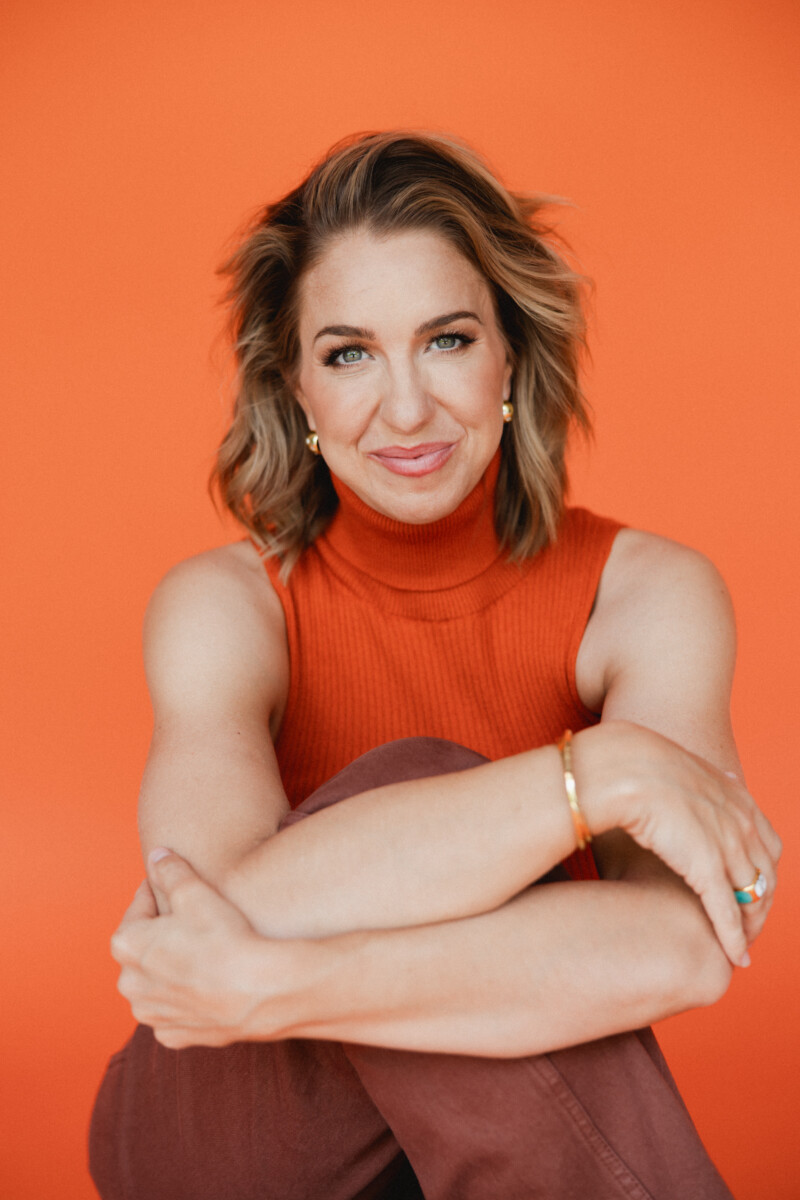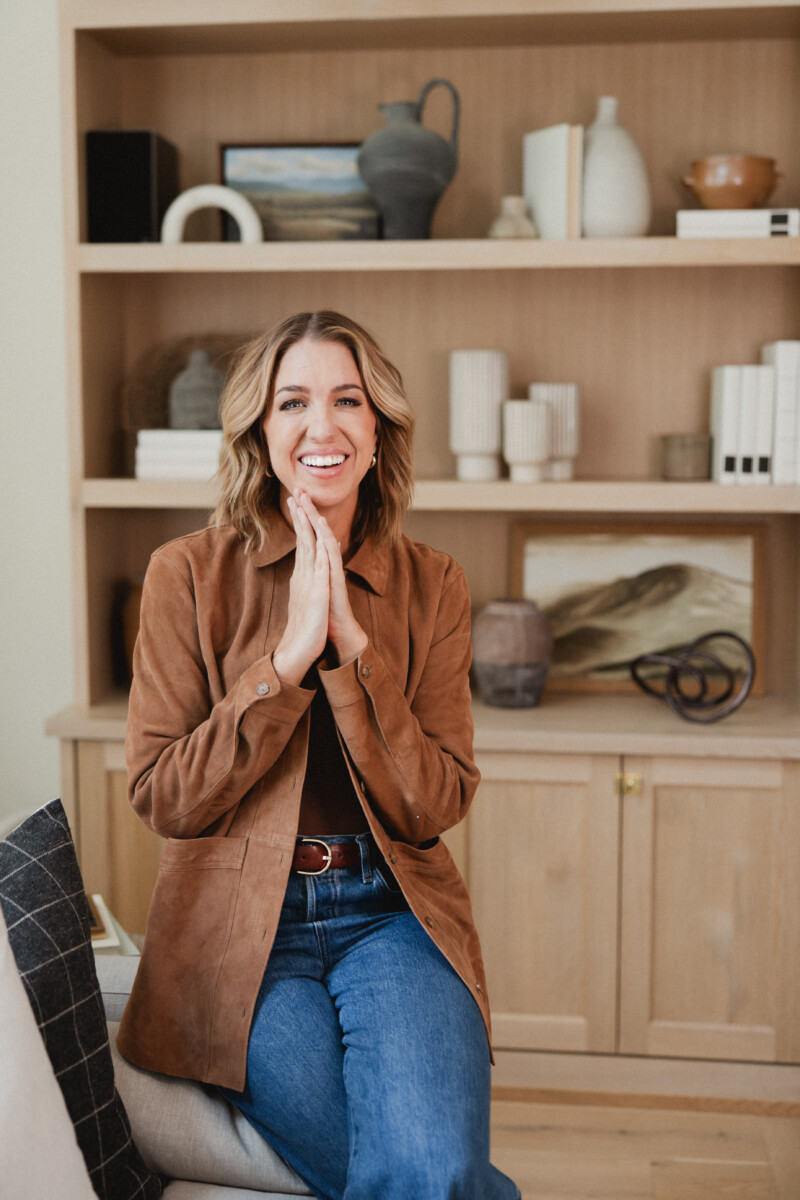
Tune In: Apple Podcasts | Spotify | Stitcher
Are you curious about the inner workings of a non-profit? Have you thought maybe a non-profit could be your calling? Are you entrepreneurial minded and want to impact the world with the business you build? This episode is for you.
Hannah Skvarla started The Little Market alongside Lauren Conrad because they wanted to find a meaningful way to give back. Their goal was to create a sustainable way to help women around the world break the cycle of poverty and create a better future for themselves and their families.
The shop is stunning but the mission behind it makes each item even more beautiful. I am so excited for Hannah to share what the early days of The Little Market looked like, how she and Lauren partnered and leveraged each other’s gifts to build the organization, and her advice for getting started on your own non-profit to celebrate and support a cause close to your heart.
Where It All Began
As a kid, Hannah had the opportunity to travel around the world to see and participate in non-profit and mission work. Instead of spring break in Cabo like her peers, she was building homes in El Salvador. This appreciation for non-profits and her the passion her parents gave her for giving back lead to the start of The Little Market.
Hannah and Lauren Conrad were in fashion school together, and they bonded over their passion for giving back. They traveled together, and in each location they were stunned by the gorgeous handcrafted goods created by the local artisans. They wanted to bring them back to the states to sell and share with their friends and customers, but how?
The pair wanted to do everything right from the start and make sure their non-profit was run appropriately. They labored over customs regulations. They determined fair wages, and it was important that their artisans were paid upfront for their goods. When the finer details were ironed out, they launched with seven artisans. They’ve since grown to over 70 artisans in over 30 countries around the world.
Starting Lean Before a Team
The goal of The Little Market was always to provide employment opportunities and income sources for women around the world — from those who have survived trafficking to formerly homeless women and others facing poverty and similar hardship. The less money they spent to get the non-profit off the ground, the more they could support this goal.
Hannah said they took on a lot of the early tasks themselves. She worked on the backend of the website, the models and photographer in their first photo shoot were a collection of friends and family. “We really relied on our community to help us do this for the least amount of money possible,” Hannah shared.
“There’s so much room for learning. Now we have a team that does a lot of those roles… But I have a sense of what each of those roles requires because at one point those were all things we were doing.”
Any Impact is Impact
Hannah shared that from day one, she felt the impact The Little Market was creating. The very first purchase of goods meant that those women were receiving income that they otherwise would not have.
With every purchase and every sale, their impact grew. But Hannah encouraged anyone wanting to start a non-profit or create impact with their business that it doesn’t have to be massive.
“People get overwhelmed with wear to start in the impact space, but it’s really important to remember that every little thing you do matters…It’s always going to look different for everybody but it’s important to not let that keep you from getting started,” Hannah shared.
Non-Profit Challenges
When many businesses start, it’s all about product-first. How can you get the product quickly and for the lowest price? Where will the product come from? What IS the product? But for Hannah and Lauren’s business model, it was all about the people first, which can present unique challenges.
If it takes an artisan longer than expected to create a beautiful handmade item, that’s okay. They’ll wait. “It’s all about doing more good than harm,” Hannah said. It’s not about rushing the process or hiring more people to get the job done faster, it’s about creating something sustainable.
And since The Little Market is Fair Trade Certified, the vetting process for new artisan groups is stringent. It can be long and arduous, sometimes even a burden on those they are trying to help. But at the end of the day, the process ensures that they’re working with individuals and companies who support fair wages, safe work environments, and the other tenets of Fair Trade Certification.
Non-Profit Misconceptions
“Non-profits are looked at differently,” Hannah started, “We’re held to a higher standard.” She began to explain some of the intricacies of running a non-profit, such as partnering with for-profit businesses. You can’t use a non-profit status to help a for-profit business make money. “And because we’re a non-profit and a store, it’s incredibly confusing!”
But non-profits still have operating costs. They still have to pay rent and buy supplies and support a workforce. “As far as where the money goes… Anything extra is invested into product purchases. We purchase products at a fair price that we work with the artisans to set.”
Press play to hear more of the nitty-gritty non-profit details, because Hannah does a stellar job walking us through the finer points of this sometimes confusing industry.
More from this Episode
What does Hannah see has her secret sauce and what special skills does Lauren bring to the business? What does Hannah have for systems now that she wishes they’d implemented from day one? What are some of her favorite stories and moments along the way? All these questions and more in the full episode, just pick your favorite podcast player and tune in to the full conversation with Hannah Skvarla.




